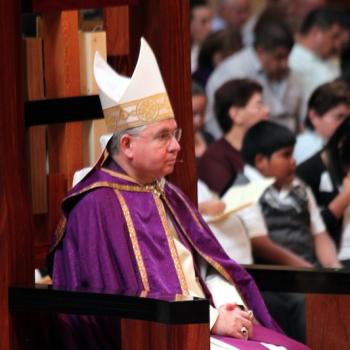[Brief summary of the retreat I gave to the CCW]
We often pray for God’s will to be done in our lives, our families, our communities, our church and the world. Every time we pray the most perfect prayer, the Our Father, we ask for God’s will to be done on earth is it is in heaven. In casual conversation we evoke God’s will regarding future events by saying “God-willing.” The Spanish language is a champion at expressing this having many options such as Dios quiera (May God want it), Primero Dios (God First), Si Dios lo permite (If God permits it), and Si Dios la licencia (If God gives license) to name some.
We pray for it, but how do know we are doing God’s will?
First we must ask and place ourselves in a disposition to listen. If there is someone with a desire for you to know God’s will, it is God himself. We must ask and as Samuel did after being instructed by Eli, we must listen. “Speak Lord for your servant is listening.” There are countless distractions and modern gadgets that rob our ability to be still and to listen. Elijah found God in the sheer silence; we too must carve silent moments of prayer and meditation.
Frequenting the Church’s sacraments is instrumental in finding the will of God since in participating in the sacraments we do the will of God. Christ has willed the sacraments as a means to receive God’s grace without fail. Every time we participate in the Eucharist we do His will because we are obedient to Jesus’ command “do this in memory of me.”
Psalm 37 asserts “find your delight in the Lord who will give you your heart’s desire.” God has planted certain desires in every heart and has the power to fulfill every one of those desires. A good place to start seeking God’s will is to consider the deepest desires and longings of your heart. God reveals His will through our natural desires and abilities, building upon them with His supernatural power. God does not work in a vacuum, but rather works within our heart’s deepest desires.
Doing God’s will requires an openness to conform your will to His will. This alignment will always be a challenge even if God’s will is simple. Consider Naaman the Syrian who did not want to wash in the Jordan River seven times to be healed of his leprosy as God had willed through the prophet Elisha. Washing in the Jordan was simple, but it was challenging for Naaman because that was not what he wanted or expected. God’s will may oftentimes be the simplest option placed before you, but just because it’s the simplest does not mean it will be the easiest because it may require the alignment of wills.
Finally to discover God’s will requires careful and prayerful discernment. According to the great Ignatius of Loyola, what comes from God is always accompanied with courage and strength, consolation, tears, inspirations and grace. Things are made easier and obstacles are removed so that the soul goes forward in doing good. In other words, God’s will brings peace and stability. On the other hand, what does not come from God harasses with anxiety and sadness while raising obstacles backed by fallacious reasoning that disturbs the soul. The soul is prevented from advancing. In other words, what is not God’s will brings turbulence and incertitude.
A leper fell prostrate in front of Jesus and said, “Lord, if you wish, you can make me clean,” and Jesus answered, “I do will it. Be made clean.” The man was open to God’s will and his greatest desire (his healing) perfectly aligned with the will of God. He was made clean. God’s will was done in his life. May it be done in ours.
[Picture: Styr River, Ukraine, 2006]
Pictures are mine, all rights reserved












